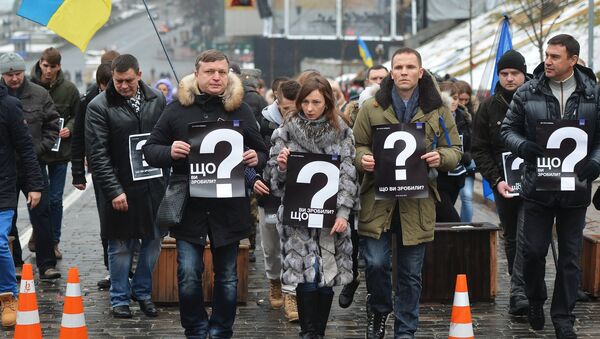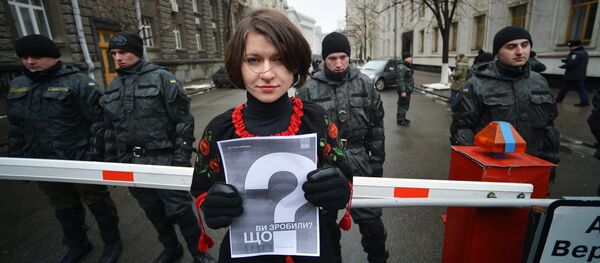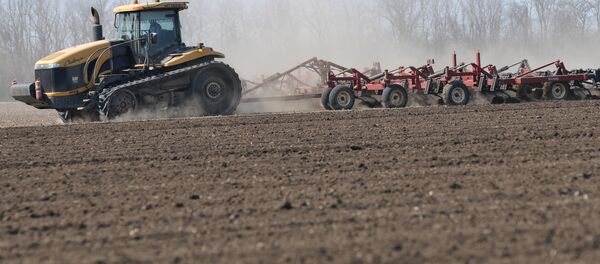Ekaterina Blinova — In a year beginning with the notorious February military coup in Ukraine, also known as the Euromaidan revolution, the Ukrainian economy has come to the brink of default.
Ukrainian authorities are celebrating the anniversary of Euromaidan revolution in Kiev this week, turning a blind eye to their own failure to bring the country's economy out of crisis, and pushing it toward "irreversible" collapse, experts note.
According to IMF chief Christine Lagarde, an expanded emergency package will amount to $40 billion over the four year period and will come via international creditors, including major Western powers, for instance Switzerland and the United States, the World Bank, the European Bank of Reconstruction and Development (EBRD).
The chief of the IMF clarified that the decision was made due to the fact that the Ukrainian regime has already carried out a string of tough economic reforms, particularly increasing gas tariffs for the country's households to 56 percent, adopting a flexible exchange rate regime, freezing numerous social programs and conducting "governance reforms" of state-owned enterprises.
Making matters worse, the National Bank of Ukraine (NBU) reported in November 2014 that the country's gold bullion reserves had diminished tremendously. Surprisingly, the NBU head provided no explanation where the country's gold has gone. Valeria Hontareva, the Governor of the Bank, admitted that there was almost no physical gold left in the vaults, adding that the amount of solid gold ingots barely covered one percent of the Ukrainian national reserves. The statement immediately sparked controversy among experts, since in February 2014 Ukrainian official gold holdings amounted to 42.3 tons, or 8 percent of the state's reserves. So far, over the year Ukraine's overall gold and foreign currency reserves reduced from around $17 billion to $6.42 billion, analysts point out.
As Kiev's prolonged the moratorium on land sales lasts until 2016, investors took out a 50-year lease on Ukraine's agricultural territories, planning to buy the lands, once the state ban is lifted. The Ukraine-EU association agreements open the doors to the liberalization of the state's economy and relaxation of its agricultural laws. While the West is obviously benefitting from the reforms, Ukraine's small and middle-sized farms have been put under threat.
The question remains, if the Ukrainian nation still believes in the success of Euromaidan revolution of February 2014…





